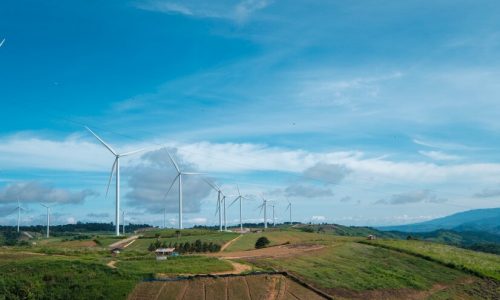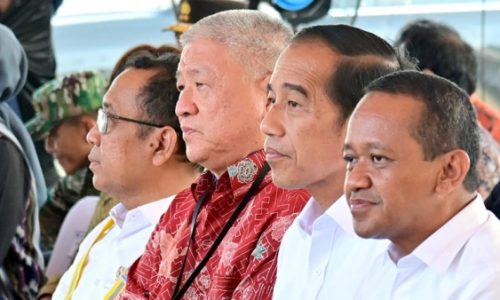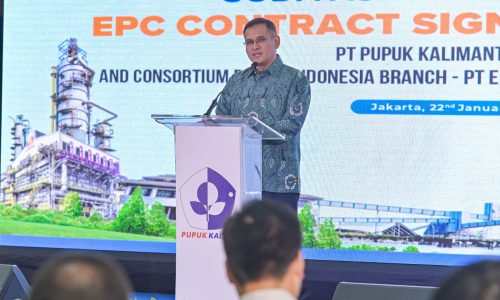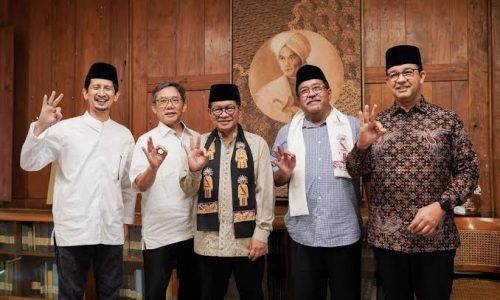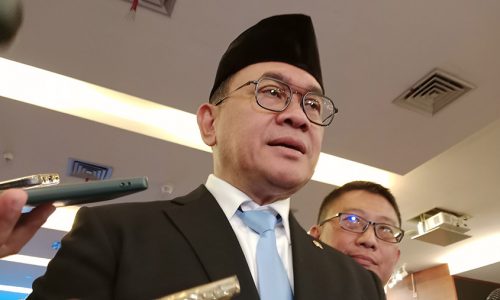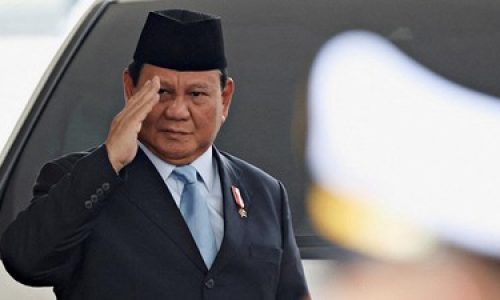Around 100 people from the Congress of Indonesia Unions Alliance (KASBI), the National Committee for Agrarian Reform (KNPA), the Indonesian Farmers Union (SPI) and the Labor with the People Movement (Gebrak), led by Nugrahanto, protested in front of the Agrarian and Spatial Planning Ministry/National Land Agency (BPN) on September 5, 2022. They protested the criminalization on the Dayak Marjun people, who fought for their rights to customary land and their environment.
The agrarian ministry will immediately start the evaluation and examine the concession of PT Tanjung Buyuh Perkasa Plantation (TBPP) since the company was unable to prove the ownership of the land. The ministry will also immediately resolve the agrarian conflict between the Dayak Marjun community and TBPP as well as returning the customary land and territories through the agrarian reform program.
Protesters accused TBPP had claimed 180 hectares of the Dayak Marjun’s customary land and turned it into oil palm plantation.
“The verdict of the criminalization case against the Dayak Marjun indigenous people will be on September 8, 2022. This criminalization had begun from an agrarian conflict between Dayak Marjun and TBPP since 2006. TBPP unilaterally seized the customary land of Dayak Marjun community for oil palm concessions,” said a protester from KNPA.
“The community has done various attempts to protest the company’s operations. However, the authorities arrested six people on June 4, 2022. Four of them were Dayak Marjun people [Jamaludin, Shabir, Mansur and Amin] while the two were KASBI activist [Boni] and an oil palm plantation worker [Alek],” said Dewi Kartika of the KNPA.
Protesters from KNPA and Gebrak found many irregularities and violations during the investigation and trial process as well as regarding the concession status of TBPP. Among the irregularities was that TBPP planted oil palm outside their right to cultivate permit (SHGU), which apparently was on the Dayak Marjun’s 180 hectare customary land without the people’s consent. The data were collected from various sources on September 29, 2021. The protesters found no government supervision or legal action for the company’s violations.
“Secondly, apart from displacing the Dayak Marjun people, the company has damaged the environment. TBPP cleared lands in forest areas, river border areas, spring borders, to coastal areas which have damaged the mangrove ecosystems and have an impact on coastal abrasion,” Kartika said.
“TBPP also haphazardly cut down mangosteen trees, which house bees. The bee houses are considered sacred by the indigenous people and they are protecting them. TBPP also changed the river flow and damaged springs due to planting oil palm outside their designated area,” she added.
“Fourthly, the public prosecutor did not elaborate the facts of the trial. The prosecutor did not include statements or testimonies from the defendants at the trial. It is clearly regulated in the Criminal Procedures Code (KUHAP) that the basis of a case submitted by public prosecutor is not the facts revealed in the investigation level examination as described in the police interrogation record (BAP). The facts only serve as a preliminary investigation (onderzoek), but the facts revealed at the trial serve as judicial inquiry (gerechtelijk onderzoek),” said Kartika.
“Fifth, there are manipulative efforts from companies, the government and law enforcement in this case. TBPP uses the Criminal Code to criminalize the people who fight for their land and environmental rights, which law enforcers also agree with. Whereas the process of resolving conflicts between the community and the company cannot use the criminal law,” said the protester.
Nining Elitos from KASBI said the agrarian ministry could immediately resolve the conflict between the Dayak Marjun community and TBPP. She added that the community demanded the return of their land through the agrarian reform.
“Since 2021, KASBI and the indigenous people have submitted a letter to the BPN Berau Office No. 01 dated April 29, 2021, regarding the application for TBPP. We have visited the BPN office twice but did not receive a good response from them,” she said.
The protesters finally were able to meet and had a dialogue with deputy agrarian minister Raja Juli Antoni.


